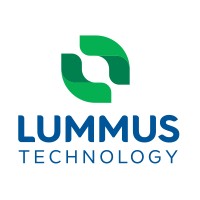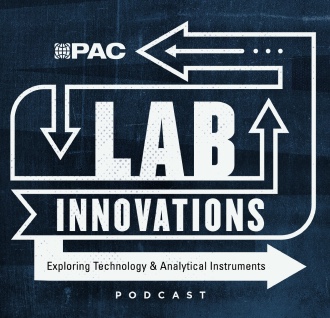-
BioForming® Sugar to Aromatics (S2A) ready now and fit for the future
The BioForming® S2A process turns sugars into a drop-in aromatic feedstock, BioFormate®. Like its reformate namesake, BioFormate® can be utilized to make a variety of end products such as bio-gasoline, drop-in sustainable aviation fuel (SAF), and bio-BTX (benzene, toluene and xylenes) - molecules used as building blocks for many everyday products, such as pharmaceuticals, polymers and coatings.
-
Eliminate SCR fouling and restore production efficiency & NOx reduction
SCR fouling is typically caused by refractory or insulation fibers that accumulate and block the face of the catalyst, eventually leading to substantial flow disruption and excessive pressure drops, typically worsening over time. This pressure drop and flow maldistribution will cause production rate limitations, unplanned outages, and environmental compliance issues, as well as reduce he catalyst life. Solution: Proven methods for keeping SCRs operating efficiently include: - ...
-
Hydroprocessing - Its not magic Its science
Its not magic. Its science. Hydroprocessors know the wall that lies between them and peak reactor performance. Fouling, pressure drop, precipitation, agglomeration, polymerization, and catalyst deactivation, these obstacles build up, block by block. We help you break through that wall, clearing your path to performance. With highly specialized expertise and unique, industry-proven solutions, Crystaphase has helped refiners all over the world achieve unprecedented efficiency ...
-
Johnson Matthey licensed processes
A portfolio of advanced process technologies for global markets. Johnson Matthey (JM) develops and licenses proprietary process technologies. We also offer collaborating companies an extensive range of technology development, process design and engineering skill. For over thirty years JM has been engaged in innovative DAVY™ licensing development. Our comprehensive expertise of catalysis and reaction engineering has been tailored to the production of a wide range of chemicals ...
-
Latest catalyst provides more methanol for longer
Johnson Matthey's latest methanol synthesis catalyst, KATALCOTM 51-102, was introduced in 2018 to offer improved catalyst stability and therefore higher end-of-life activity and extended lifetimes than conventional methanol synthesis catalysts. Since launch, KATALCO 51-102 has been successfully installed in two methanol plants and a third is planned for later in the year. In this article Johnson Matthey provides an update on the proven performance of KATALCO 51-102 during lab ...
-
Making and breaking NH3 – Ammonia and its place in the low carbon economy
Helping decarbonise the ammonia industry. With our extensive knowledge of science and technology, Johnson Matthey is helping decarbonise the ammonia industry with the following catalysts for green ammonia synthesis and cracking: PURAVOCTM GREEN 10 for oxygen removal from renewable hydrogen, KATALCOTM 74-1 GREEN, the highest activity ammonia synthesis catalyst, KATALCO 27-2 for high temperature ammonia cracking and KATALCO 27-612 for low temperature ammonia cracking.
-
Transition to net zero: steps to decarbonize the oil refining industry
A review of the solutions being employed by oil refineries to reduce their Scope 1, 2, and 3 greenhouse gas emissions. Despite improvements in vehicle fuel economy, increasing adoption of hybrids, and EVs, petroleum- based fuel demand continues to grow, at least in the short- to mid-term! In general, demand is generated from population growth and increased car ownership, and both are increasing. However, during the pandemic, people concerned about health moved around less. Consequently, ...
-
Novel sulfur removal pathways to improve energy efficiency and decarbonisation
Decarbonisation and energy efficiency are key economic drivers for refining and petrochemical operators globally, along with emphasis on minimizing sulphur emissions. Sulphur removal has been practiced in the industry for decades. However, with the development of new media, adsorbents, and catalysts, it’s now possible to achieve the above stated goals by deploying these materials in different applications related to refinery and petrochemical sectors. This webinar will showcase ...
-
A new approach to catalyst recycling & sulfur recovery
Evonik’s catalyst reuse technologies enable today’s sulfur recovery unit operators to gain the activity they require while minimizing cost and environmental footprint, with the help of catalyst reuse technologies. You will benefit from the following insights: • Get an overview of how Evonik is leading the industry in catalyst reuse technologies, in particular for tail gas treating applications. • Explore the benefits of extending catalyst reuse from hydroprocessing ...
-
Maximizing renewable diesel and sustainable aviation fuel yields
Investments in renewable diesel (RD) and sustainable aviation fuel (SAF) production are gaining considerable momentum and are expected to play a vital role in reducing carbon emissions for heavy-duty transportation. Currently, the majority of these projects focus on the production of HEFA (Hydroprocessed Esters and Fatty Acids). Chevron Lummus Global combines the renewable processing catalyst experience and technology of ART's ENDEAVOR™ catalyst system, CLG's hydroprocessing ...
-
The Sustainable Solution for HydroProcessing Catalysts
Unveil the path to sustainable catalyst processes with Excel® Rejuvenation Technology! Join us as we delve into the art of catalyst rejuvenation, uncovering the means to propel your processes towards enhanced sustainability and waste reduction. Learn how to steer your operations away from wasteful practices and embrace sustainability using Evonik's Excel® Hydroprocessing Catalysts solutions. Our certified Life Cycle Assessment (LCA) lays bare the potential emissions you can ...
-
Navigating Complexities of Renewables Processing: Feedstocks, Legislations, Challenges & Solutions
Refineries are shifting away from producing traditional fuels to remain relevant, compliant and profitable. Join us to learn more about recent developments in renewable feedstocks processing. In this webinar from Ketjen, you will gain an understanding of the regulations and drivers that shape the renewables market. You will also have a chance to learn about operational challenges you may face while processing feedstocks with various amounts and grades of HVO or waste plastic ...
























